Borders College's chicken-keeping course proves a hit
- Published
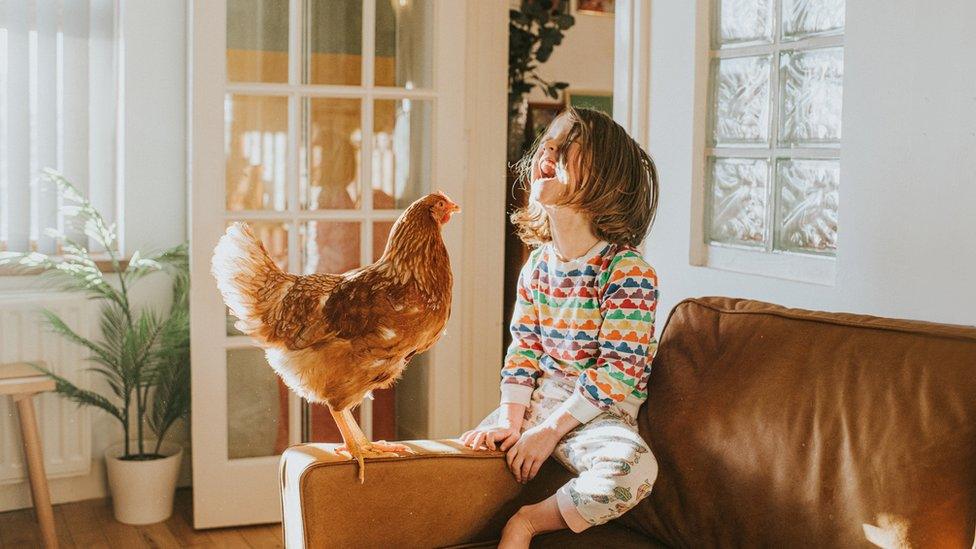
Lecturer Fiona Steel said chickens could make "brilliant wee pets"
A rural college has launched a series of courses to help people get more from the countryside while cutting their carbon footprint and living costs.
Borders College is offering the chance to study skills like foraging, keeping chickens and how to grow your own food.
Learning manager Andrew Johnson said the college had researched what subjects people might be attracted to.
However, he said interest in the free, part-time courses had exceeded what they expected at the outset.
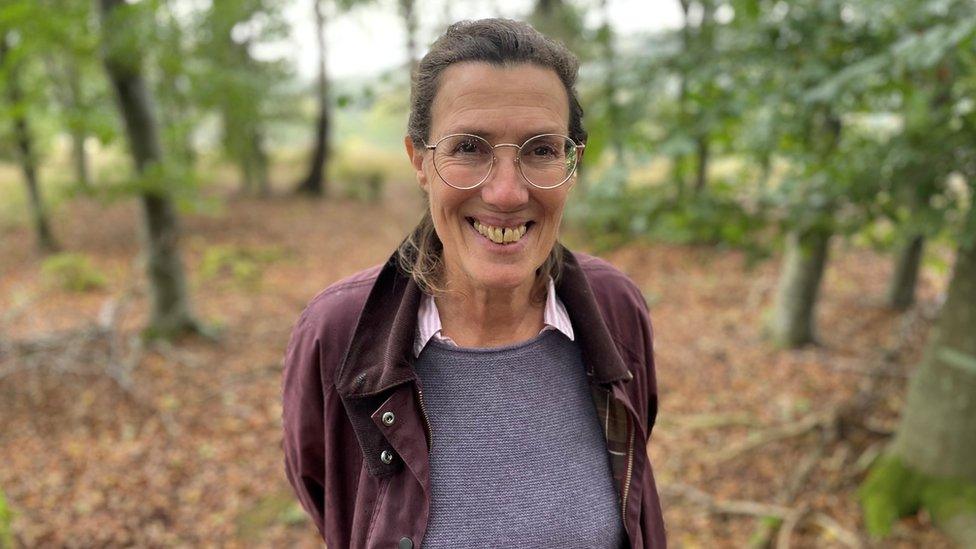
Rachel Sutherland runs a course on foraging which has also proved popular
"We always thought there would be a demand here but not quite the demand we have come across," he said.
"I think people are more interested now in where their food is being produced, local food production.
"There are more and more people keeping two or three hens in the back yard now and they just want to know a little bit more about keeping them and how to look after them."
He said rising prices for food had clearly played a part.
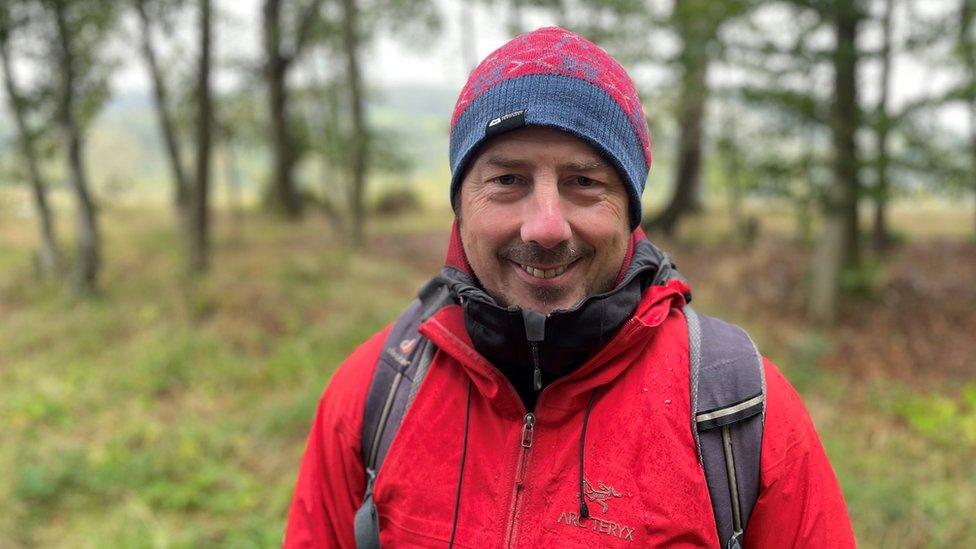
Jamie Lewis said picking food in the wild was a way to save money in times of "financial toughness"
"The cost-of-living crisis has definitely helped us recruit for these courses," he added.
Lecturer Fiona Steel was asked to put together the chicken-keeping course.
"My big thing is animal welfare and making sure that if we are going to do something we are going to do it right," she said.
"So this was just to give people an introductory insight - if they were thinking about keeping chickens - to hopefully set them off on the right path so they were doing things correctly for themselves and the birds."
However, she said people should be wary of thinking they would save money.
"You do have to bear in mind that going and buying a box of eggs is probably cheaper than keeping birds, keeping them through the winter and feeding them to produce those few eggs," she said.
"However, you get the other benefits on top.
"Chickens actually make brilliant wee pets, they are quite easy to look after and they are quite easy to get somebody else to come in and mind them unlike the cat or the dog."
She said chickens could provide both a mental health boost and a culinary one.
"You will never get a fresher egg than one you have collected yourself out the back," she said.
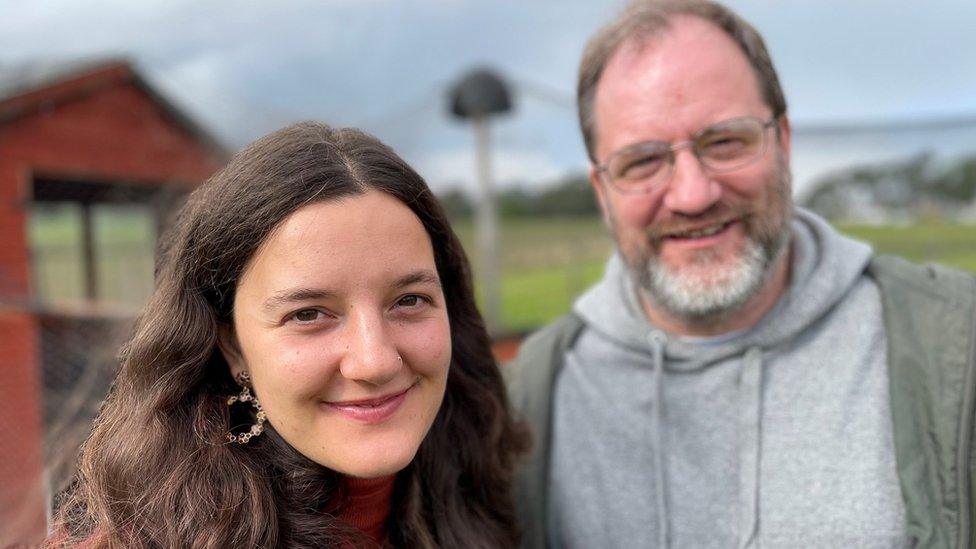
Sylvia Law and Michael Edwards are among those attending the chicken-keeping course at Borders College
Among the students are Sylvia Law and Michael Edwards who have a farm cottage.
"We are looking to build and grow and have wildlife and so we have chickens and we wanted just to learn more about keeping them," Ms Law said.
"One of the benefits might be to have a few home-grown eggs and good quality eggs that we know exactly where they have come from," Mr Edwards added.
"But it is not going to reduce our food bill in any meaningful way."
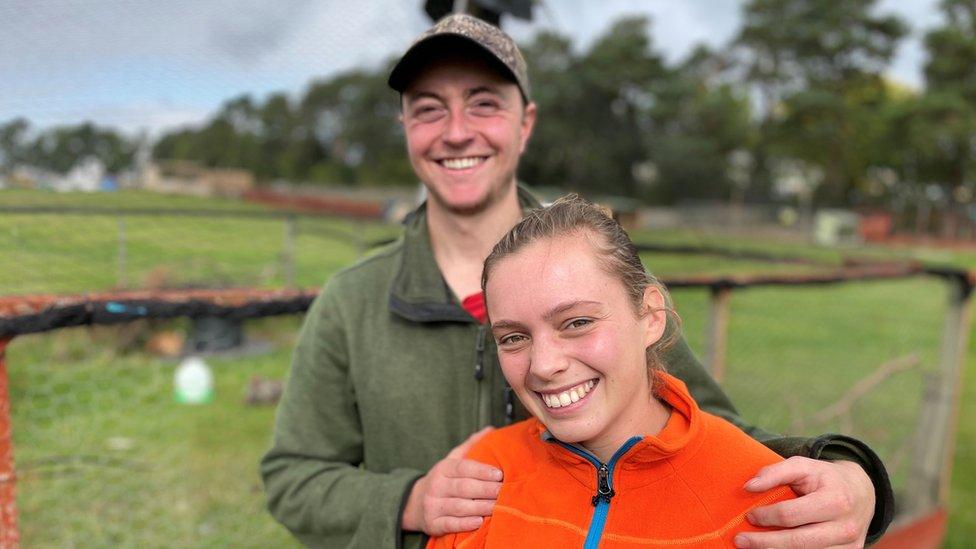
Keeping their own chickens might provoke a lifestyle change for Beth Hanson and Henry Bucknall
For Beth Hanson and Henry Bucknall it could provide a significant lifestyle change.
"I am a vegan at the moment so if I had my own chickens I would definitely eat their eggs and know that they have a happy life," Ms Hanson said.
"Just seeing them happy, I would definitely be happy to eat their eggs.
"I think you can tell with a happy chicken if their eggs are happy as well."
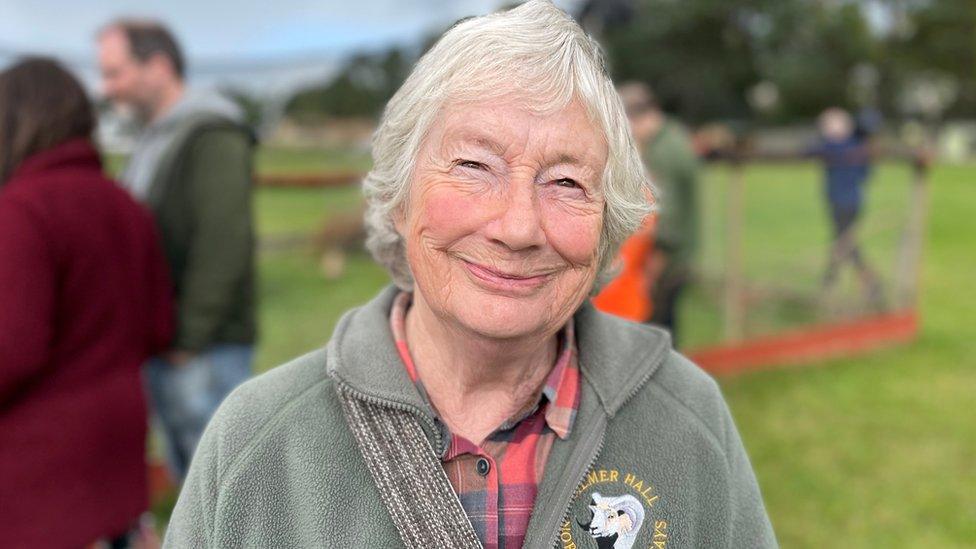
Anne Lane said producing your own food was bound to help with weekly bills
Anne Lane is retired with a smallholding and has had hens in the past and might get some again.
"I have just come for an update and see what the latest rules and regulations are," she said.
"As we were told in the lecture, there is nothing like fresh eggs and if you can produce some of your own food - be it eggs or vegetables or fruit - then it is bound to help the weekly budget."
As well as chicken-keeping, it is also possible to study foraging with Rachel Sutherland gathering all sorts of fungi, fruits and herbs to supplement diets.
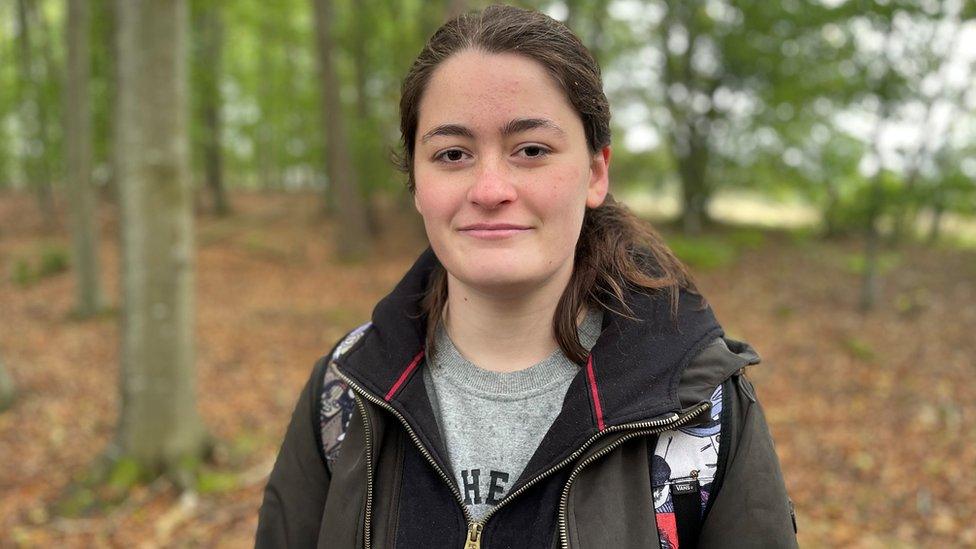
MacKenzie Brown said foraging for mushrooms was "so cool"
Mackenzie Brown, who attended that course, said: "I think it is just fun to know.
"My friend does mushroom foraging and I think that is so cool - I think I would like to have those little titbits of information."
Landscape archaeologist Jamie Lewis said he was interested in the subject for a couple of reasons.
"Firstly, I was interested in landscapes and looking at how nature and ecology within landscape works," he said.
"Also the foraging side as well - understanding how in this time of financial toughness how we can actually save some money by picking what is outside in our gardens and in the woods and in the wild."